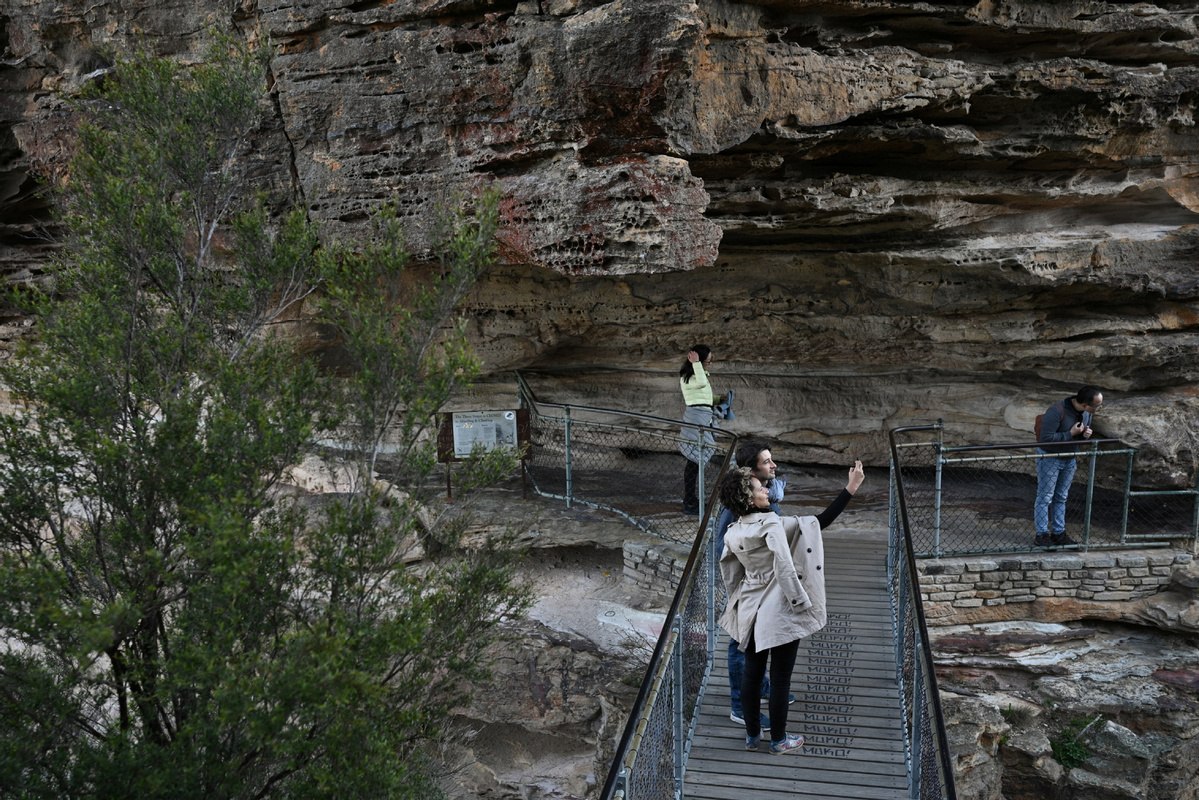
Tourists hike a trail at the Three Sisters rock formation in Blue Mountains National Park in the wake of regional travel re-opening as the coronavirus disease (COVID-19) restrictions are eased in New South Wales, in Katoomba, Australia, June 5, 2020. [Photo/Agencies]
CANBERRA - South Australia (SA) has taken the first steps in reopening its borders to the rest of the country.
The state's borders were reopened to travelers from Western Australia (WA), Tasmania and the Northern Territory (NT) at midnight on Tuesday night, meaning entrants from those states will no longer be subjected to a mandatory 14-day quarantine period.
With SA sharing a land border with WA and the NT, the state government is hopeful that it will provide a much-needed boost for South Australia's tourism industry.
"What we are effectively doing is removing the border on our side, that means that we should see more people travelling into South Australia," Premier Steven Marshall told reporters on Tuesday.
"It's got to be direct travel, so somebody can't travel from Western Australia into Sydney and then into South Australia."
"We appreciated that it wouldn't mean that flights would start the following day but we are having discussions via the Tourism Commission and airport, with airlines."
"We hope to see them in coming weeks. SA becomes an attractive destination for Northern Territories and West Australians potentially to travel on roadtrips," he said.
Tasmania, SA, WA and the NT, all of which closed their domestic borders in March, have successfully stopped the spread of COVID-19 in their jurisdictions.
The announcement was welcomed by Prime Minister Scott Morrison who has been calling for domestic borders to be reopened.
Marshall said that the border could also be reopened to travelers from Queensland within a week while those from Victoria and New South Wales, which continue to account for the majority of new coronavirus cases, would have to wait until July 20.
"We are still concerned about New South Wales and Victoria," he said.


